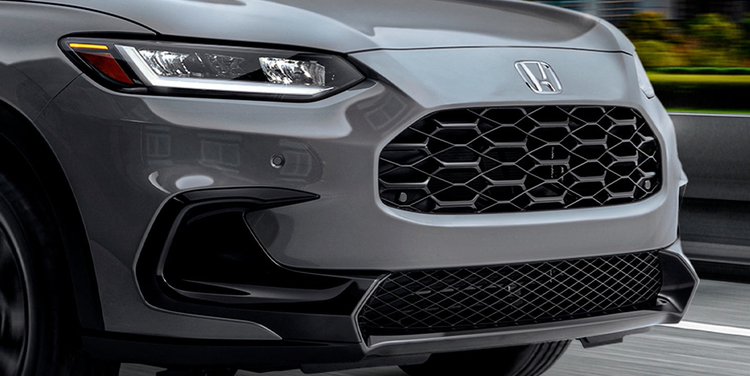As the implementation of Trump's tariffs approaches, Japanese automakers have increased car exports from Mexico to the United States by 17%.
According to Nikkei, Japanese automakers have been exporting more vehicles made in Mexico to the United States in recent months, apparently to increase inventory before the latest tariff policies by President Trump take effect.

Image source: Honda Mexico website
Nikkei援引行业情报公司MarkLines的数据报道称,去年12月至今年2月,日本汽车制造商从墨西哥向美国出口了21.7万辆汽车,比上年同期增长17%。上周,特朗普宣布将从4月3日起对进口汽车征收25%的关税。
Among them, Honda exported 43,000 vehicles from Mexico to the US market between last December and February, a year-on-year increase of 4%. The company produces the relatively low-priced HR-V model in Mexico, and exported a total of 170,000 HR-V vehicles to the US throughout 2024, accounting for its sales in the USCar salesThe reported impact of Trump's auto tariffs, including those on Canada, is expected to affect Honda by 700 billion yen (about $4.7 billion). The company has been taking measures to mitigate this blow.
Shinji Aoyama, Honda's executive vice president in charge of risk management, said in February that the company would try to ship more cars produced in Mexico and Canada to the U.S. before the tariffs are officially imposed.
Among all Japanese automakers, Toyota Motor saw the largest increase in car exports from Mexico to the U.S. between December last year and February this year, reaching 64,000 units—3.7 times the level of the same period the previous year. The company currently produces the Tacoma pickup truck model in Mexico. However, in late 2023 and early 2024, Toyota halted production in Mexico to transition to new models, resulting in a lower base figure.
Seiji Sugiura, a senior analyst at Tokai Tokyo Intelligence Laboratory, stated, "There is strong demand for cars in the U.S. market. Considering Trump's tariffs, (automakers) may realize the necessity of increasing inventory."
Reports suggest that the tariff policies of the Trump administration will force Japanese automakers to restructure their production networks in North America. Jennifer Safavian, president and CEO of trade organization Autos Drive America, stated in a release that automobile tariffs will ultimately lead to "higher prices, fewer consumer choices, and fewer manufacturing jobs in the U.S."
【Copyright and Disclaimer】The above information is collected and organized by PlastMatch. The copyright belongs to the original author. This article is reprinted for the purpose of providing more information, and it does not imply that PlastMatch endorses the views expressed in the article or guarantees its accuracy. If there are any errors in the source attribution or if your legitimate rights have been infringed, please contact us, and we will promptly correct or remove the content. If other media, websites, or individuals use the aforementioned content, they must clearly indicate the original source and origin of the work and assume legal responsibility on their own.
Most Popular
-

Amcor Opens Advanced Coating Facility for Healthcare Packaging in Malaysia
-

ExxonMobil and Malpack Develop High-Performance Stretch Film with Signature Polymers
-

Plastic Pipe Maker Joins Lawsuit Challenging Trump Tariffs
-

Pont, Blue Ocean Closures make biobased closures work
-

Over 300 Employees Laid Off! Is Meina Unable to Cope?

